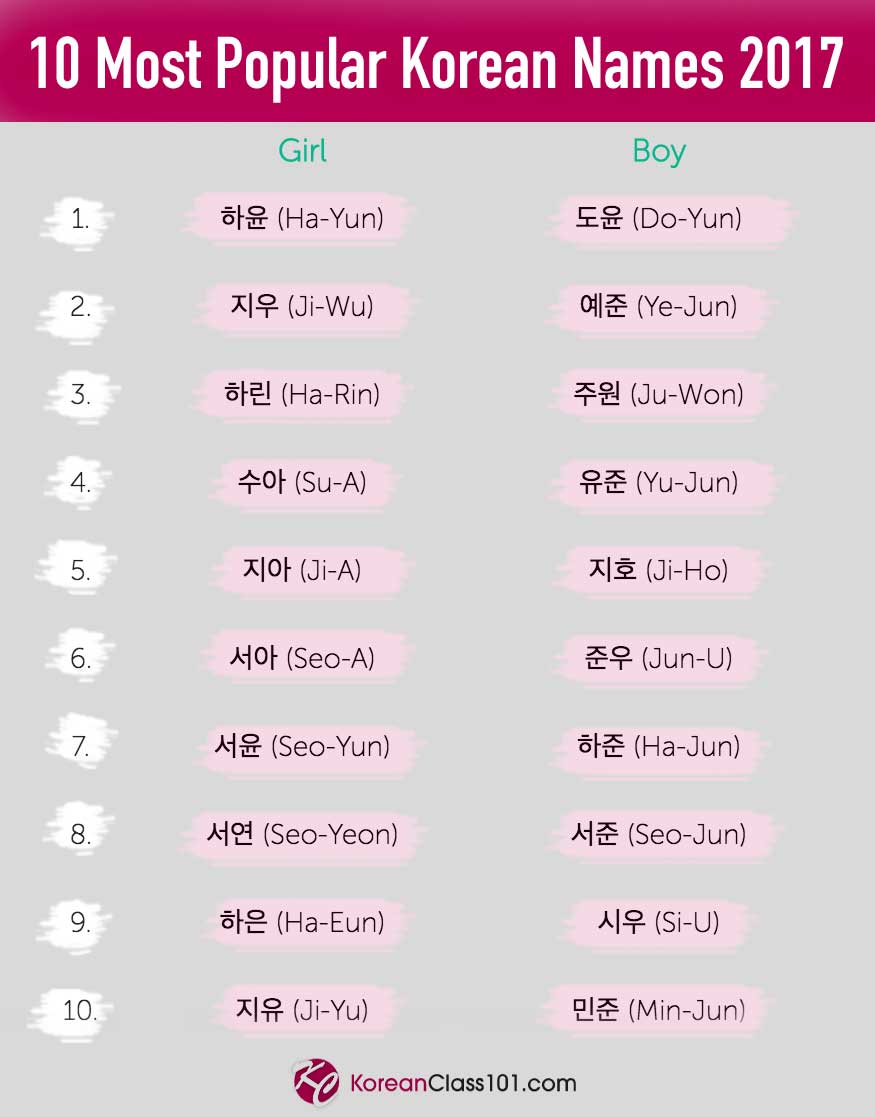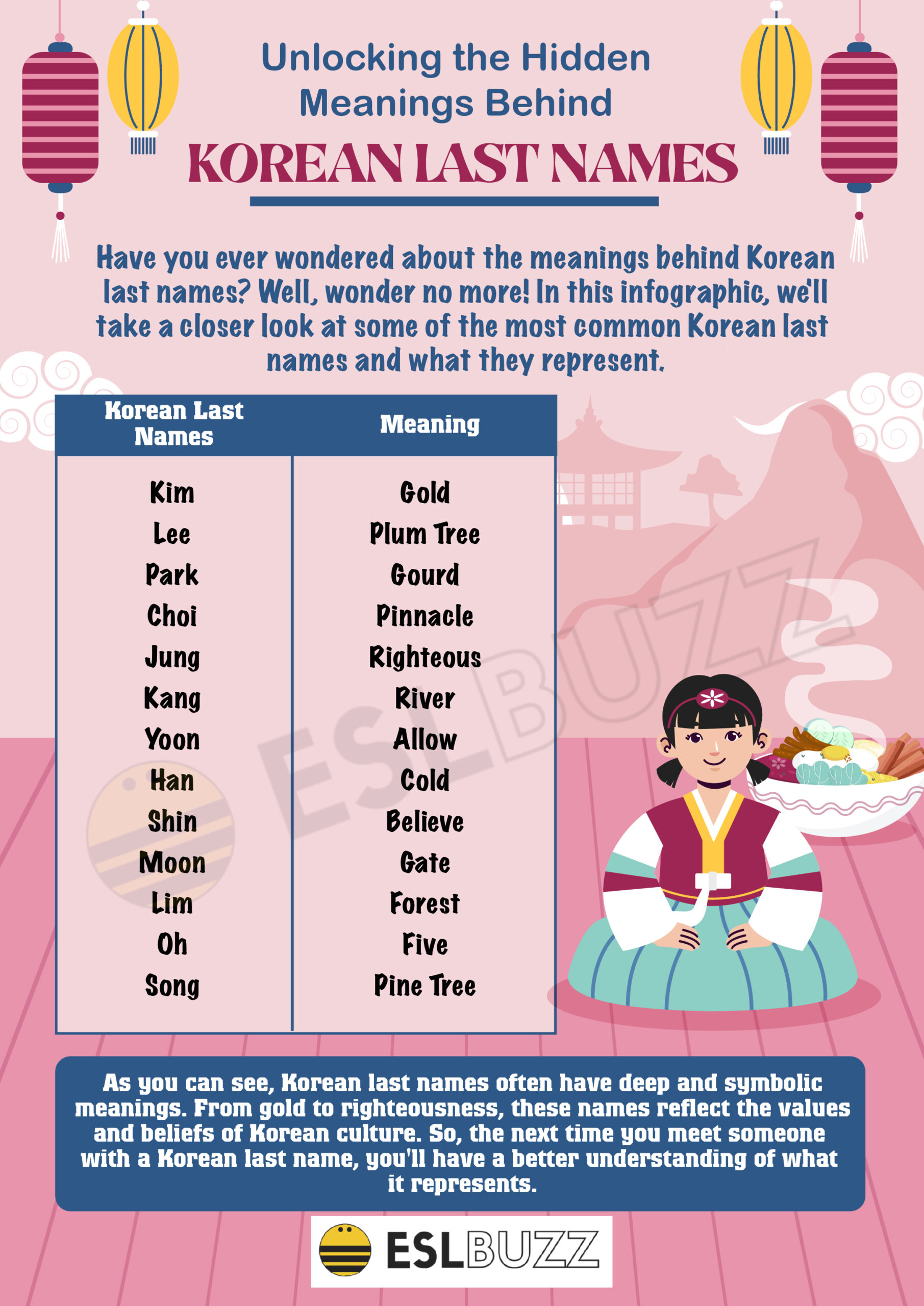Korean names are more than just a combination of letters; they reflect a rich cultural heritage and a deep connection to family and tradition. Each name carries significance, often inspired by nature, virtues, or historical figures, and is carefully chosen to embody the hopes and dreams of the family. As globalization continues to bridge cultures, understanding the intricacies of Korean names can provide valuable insights into the Korean identity and societal values.
The structure of Korean names is unique, typically consisting of a family name followed by a given name. The family name often holds greater importance, representing lineage and ancestry. Given names are usually composed of two syllables, each with its own meaning, contributing to the overall significance of the name. This naming convention not only emphasizes the importance of familial ties but also showcases the beauty and meaning embedded in the Korean language.
In this article, we will explore various aspects of Korean names, from their historical significance to contemporary trends. We will also delve into how names reflect cultural values, as well as the impact of globalization on naming practices. Whether you're interested in naming your child, researching your heritage, or simply curious about Korean culture, understanding Korean names can be a fascinating journey into the heart of a vibrant society.
What Are the Common Characteristics of Korean Names?
Korean names are distinctive, and several characteristics set them apart from names in other cultures:
- Two-Part Structure: Most Korean names consist of a family name (one syllable) followed by a given name (two syllables).
- Meaningful Syllables: Each syllable in a given name often has a specific meaning, chosen to reflect positive traits or aspirations.
- Family Significance: The family name is paramount, with many Koreans sharing common surnames, such as Kim, Lee, and Park.
- Generational Naming: Some families follow a generational naming system where the first syllable of the given name is shared among siblings born in the same generation.
How Are Korean Names Chosen?
The process of choosing a name in Korea can be quite elaborate and involves several considerations:
- Consultation with Experts: Many families consult a fortune teller or naming expert to choose a name that brings good fortune.
- Family Traditions: Names may be passed down through generations or chosen based on family traditions.
- Personal Preferences: Parents often consider personal preferences and the meanings of syllables when choosing a name.
What Are Some Popular Korean Names?
Here are some popular Korean names and their meanings:
- Jisoo (지수): Meaning "wisdom" and "to excel."
- Minji (민지): Meaning "smart" and "wisdom."
- Seojin (서진): Meaning "auspicious" and "precious."
- Hyunwoo (현우): Meaning "worthy" and "house."
What Is the Cultural Significance of Korean Names?
Korean names are steeped in cultural significance, reflecting the values and beliefs of Korean society. The importance of family, honor, and virtue is often embodied in the names chosen for children. Names are seen as a reflection of one's identity and are believed to influence a person's future. Additionally, certain names may be associated with historical figures or events, linking individuals to their cultural heritage.
How Do Korean Names Change Over Time?
The evolution of Korean names is influenced by social and cultural changes:
- Modern Trends: Contemporary naming trends often blend traditional and modern elements, leading to unique combinations.
- Globalization: As Korea becomes more interconnected with the world, names may be adapted to be more easily pronounced by non-Koreans.
- Gender Fluidity: Increasing acceptance of gender fluidity has led to a rise in names that are less gender-specific.
Can Korean Names Be Translated?
Translating Korean names can be complex due to the rich meanings behind each syllable. While some names may have direct translations, others may not convey the same significance in another language. It is essential to consider both the phonetic and semantic aspects when attempting to translate a Korean name.
Who Are Some Famous People with Korean Names?
Many individuals with Korean names have made significant impacts in various fields. Here is a brief biography of a renowned Korean celebrity:
| Name | Kim Tae-hyung (뷔) |
|---|---|
| Date of Birth | December 30, 1995 |
| Profession | Singer, Songwriter, Actor |
| Famous For | Member of BTS |
| Nationality | South Korean |
Kim Tae-hyung, popularly known by his stage name V, is a member of the globally acclaimed boy band BTS. He has captivated audiences worldwide with his incredible vocal talent and charismatic stage presence. In addition to his musical achievements, V has also ventured into acting, showcasing his versatility as an artist. His name, Tae-hyung, carries the meaning of "great" and "hero," reflecting the aspirations his family envisioned for him.
What Are Some Tips for Choosing a Korean Name?
If you're considering choosing a Korean name, whether for a child or for personal use, here are some tips:
- Research Meanings: Understand the meanings behind different syllables and names.
- Consider Pronunciation: Ensure the name is easy to pronounce for speakers of other languages.
- Consult Cultural Experts: Seek guidance from someone knowledgeable about Korean culture and naming practices.
- Embrace Personal Significance: Choose a name that resonates with your personal beliefs and values.
How Do Korean Names Reflect Modern Society?
Korean names are evolving alongside modern society, reflecting changes in cultural attitudes and values. As Korea becomes more globalized, names are increasingly influenced by trends from other cultures. Additionally, the rise of social media and celebrity culture has led to the adoption of unique and creative names, further diversifying the landscape of Korean names.
In conclusion, Korean names are a fascinating exploration of culture, identity, and meaning. Understanding the nuances behind these names can provide a deeper appreciation of Korean heritage and its influence on contemporary society. Whether you are drawn to the beauty of the language or the stories behind the names, the world of Korean names offers a rich tapestry of history and significance.

